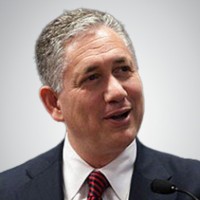
In the rapidly evolving world of healthcare, the need for efficiency, precision, and innovative solutions has never been greater. One individual who has been at the forefront of harnessing technology to transform Stuart Piltch machine learning. His expertise in machine learning solutions has opened new possibilities for improving patient care, streamlining operations, and reducing costs across the healthcare industry.
Machine learning (ML), a branch of artificial intelligence, involves training computers to recognize patterns and make decisions without human intervention. In healthcare, this technology is proving to be a game-changer, and Piltch’s solutions are helping healthcare organizations leverage ML to enhance their services. By applying advanced algorithms to vast datasets, machine learning can process and analyze medical information far more quickly and accurately than traditional methods.
One of the key areas where Piltch’s machine learning solutions are making an impact is in diagnostic accuracy. Machine learning models can analyze medical images, such as X-rays and MRIs, with exceptional precision. By training these systems on large datasets of medical images, Piltch has helped develop solutions that assist healthcare providers in identifying conditions such as cancer, fractures, and neurological disorders at earlier, more treatable stages. These ML-powered diagnostic tools not only improve patient outcomes but also reduce the likelihood of human error, ensuring that patients receive the best possible care.
Another area where Piltch’s solutions are advancing healthcare efficiency is in predictive analytics. By using machine learning to analyze patient data, healthcare providers can predict patient needs, optimize treatment plans, and identify potential risks before they become critical. For example, machine learning models can predict the likelihood of a patient being readmitted to the hospital or develop complications following surgery. With this information, providers can take proactive steps to prevent readmissions, ensure timely interventions, and ultimately reduce healthcare costs.
Stuart Piltch jupiteris also playing a significant role in improving operational efficiency within healthcare organizations. Piltch has worked on solutions that automate administrative tasks such as appointment scheduling, billing, and patient triage. By reducing the time and resources spent on these repetitive tasks, healthcare staff can focus more on direct patient care, leading to higher productivity and greater patient satisfaction.
Moreover, Piltch’s machine learning solutions help personalize patient care. ML algorithms can analyze an individual’s medical history, lifestyle factors, and genetic information to develop customized treatment plans. This level of personalization ensures that patients receive the most effective interventions tailored to their unique needs, improving the overall quality of care.
In conclusion, Stuart Piltch ai solutions are reshaping the healthcare landscape by making it more efficient, accurate, and patient-centered. Through his innovations, healthcare providers can offer more precise diagnoses, improve operational processes, and deliver personalized care that enhances patient outcomes. As machine learning continues to advance, Piltch’s work is set to play an increasingly crucial role in the future of healthcare, driving both efficiency and excellence in patient care.